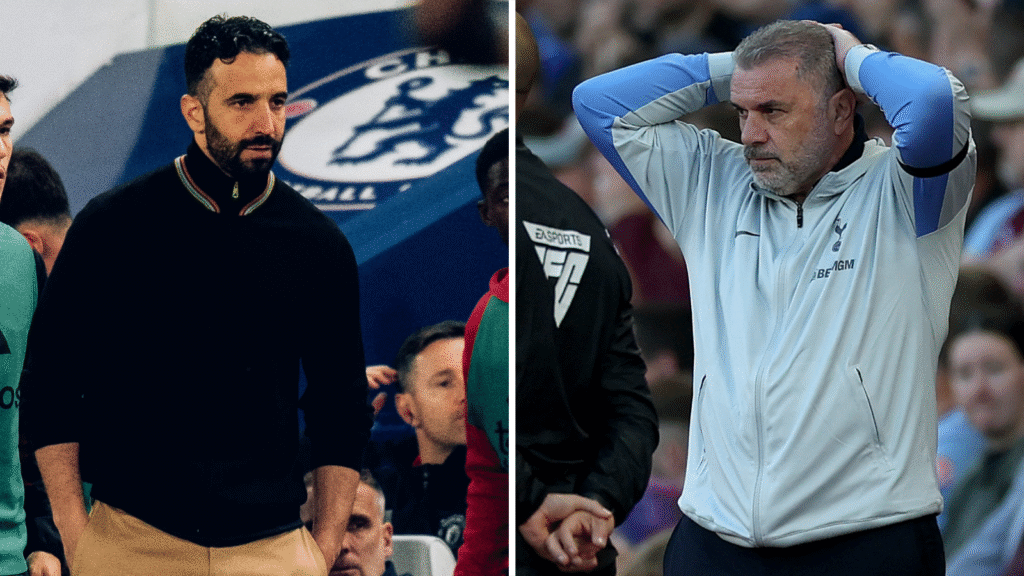As Manchester United and Tottenham Hotspur gear up for their Europa League encounter in Bilbao, the football world is abuzz with curiosity. Both clubs are wrestling with dismal performances domestically, having faced record lows this season. With the critical final match scheduled for Wednesday, May 21, the stakes couldn’t be higher for both teams, who are eager to redeem themselves and secure a European trophy.
Both United and Spurs have been struggling in the Premier League, languishing in the bottom half of the table. The Europa League presents a unique opportunity for redemption as winning it would not only crown them as champions but also guarantee a coveted spot in next season’s Champions League. This sense of urgency was underscored by their most recent matches, where both sides suffered losses—Manchester United succumbed 1-0 at Chelsea while Tottenham faced a 2-0 defeat to Aston Villa.
Looking at the performance stats, Manchester United has suffered 18 losses this season, the highest number since the 1973-74 season, when they were relegated. Tottenham, on the other hand, has recorded 25 defeats across all competitions—a historical low for the club. Additionally, United faces an unprecedented eight-game winless streak in the league, while Spurs have only triumphed once in their last eleven league outings, showcasing their dire need for a turnaround.
Interestingly, despite their domestic failings, their European form tells a different story. Both clubs are unbeaten in their last five matches in the Europa League, winning four. This contrast provides a glimmer of hope as they head into the Bilbao final, putting previous failures behind and channeling their energies into achieving success on the European stage.
Examining their recent strategies reveals contrasting approaches by the managers. Ruben Amorim, United’s head coach, opted for a strong lineup against Chelsea, indicating a desire for competitiveness over rest. Conversely, Spurs’ manager, Ange Postecoglou, chose to rest key players in their match against Aston Villa, perhaps to keep them fresh for the Europa League final.
The tactical decisions from both sides reflect their varying mindsets. While Amorim is focused on maintaining momentum and sharpening his team’s competitive rhythm, Postecoglou is potentially more concerned about safeguarding his players against injuries that could arise from intense matchups. It’s noteworthy that despite the different strategies, injury issues haunt both teams, with both having significant absentees impacting their overall squad depth.
In the days leading to the final, United may indeed find themselves looking towards the historical weight of their club in big matches, which could provide them with a psychological edge. Historically, United has proven resilient in cup finals, and their wealth of experience might play a crucial role against a Spurs side that is yet to win a major trophy under Postecoglou. Former Manchester United captain Roy Keane has pointed out that the historical context of United’s performance in critical games may ultimately tip the scales in their favor, while others believe that this match is a 50/50 proposition.
Beyond the historical narrative, the match presents a chance for Tottenham to rewrite their own story, specifically for players like Son Heung-min, who has been looking to escape a trophy-less tenure with the club. His determination, alongside the emerging talents on both rosters, could possibly be the spark needed to ignite either squad into a serious title contender in the context of this final.
Ultimately, the clash between Manchester United and Tottenham Hotspur in Bilbao represents more than just a trophy; it symbolizes a chance for resurrection and pride after a tumultuous domestic season. As both clubs prepare to battle, the football community eagerly awaits what promises to be a thrilling encounter, brimming with drama and anticipation, and one that could define the fate of both clubs for seasons to come.



